The Roman pantheon of gods is considered to be the largest of all.
The Romans had gods for every imaginable thing. They had Mars, the god of war, Neptune, the god of the sea, Bacchus, the god of wine, and many more. Like all cultures, they also had a rich and vibrant mythological background.
While some of their gods are adaptations of the Greek gods, some are original too such as the two-faced god of doorways and gates, Janus. These deities gave the Romans a sense of national pride, an understanding of valor and honor, and an insight into their own destiny.
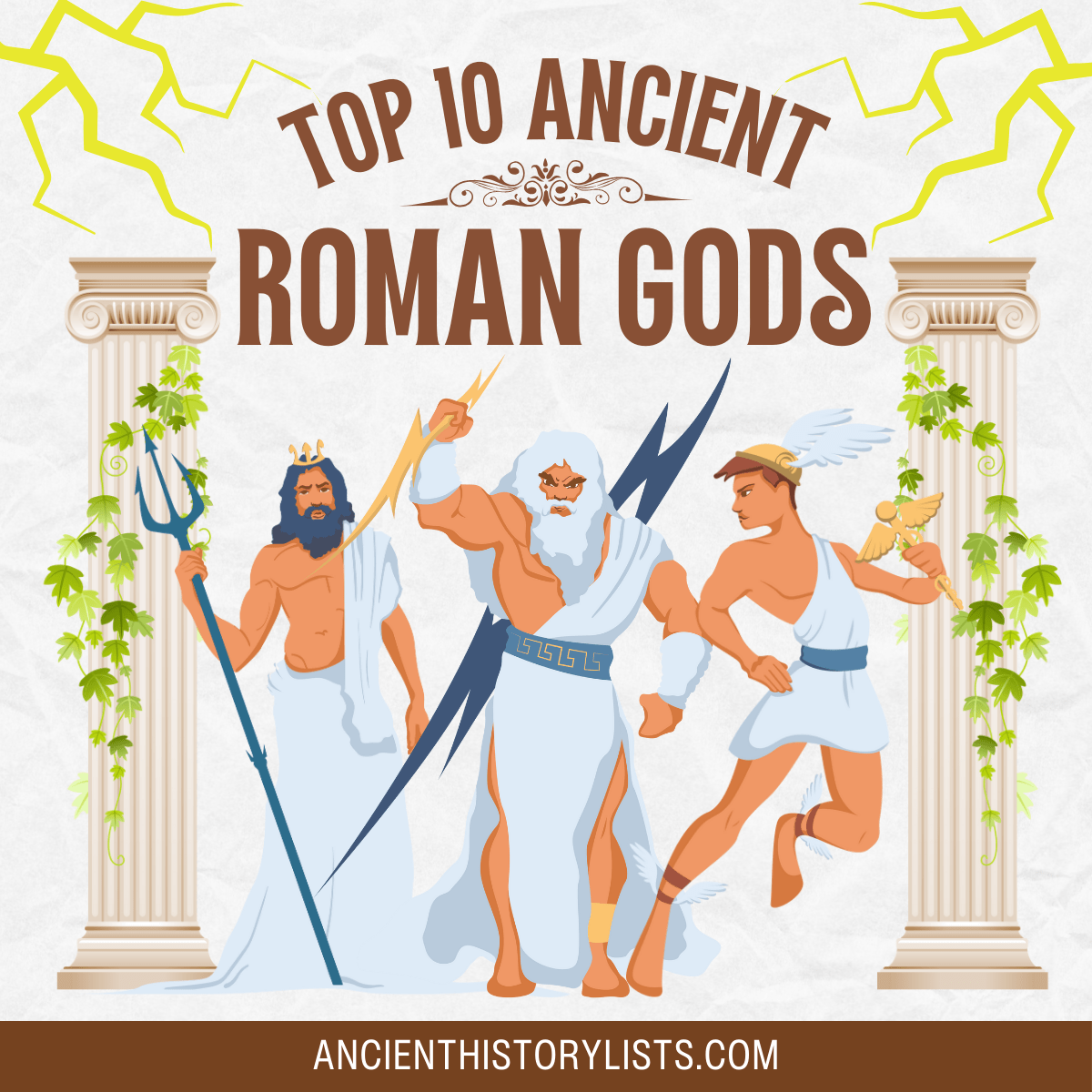
Ancient Rome’s traditional religious system can also be seen in Roman historical literature and the visual arts. The Legend of Romulus and Remus is one such famous example. The Roman gods had majestic personas and great powers.
Let’s take a look at the list of the top 10 Roman gods to find out a little more about them:
1. Jupiter, the King of Gods
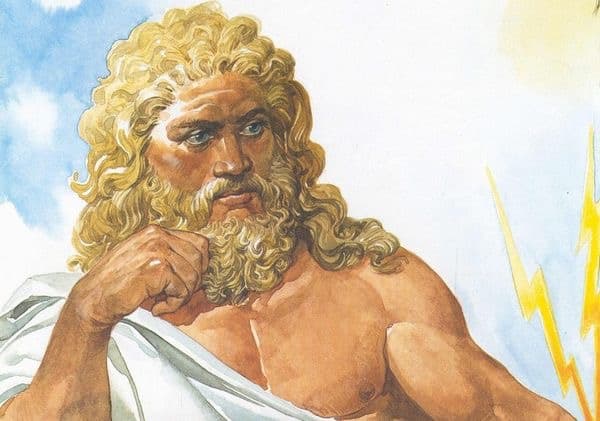
Jupiter, also known as Jove, is the chief Roman deity. With his enormous power, he is said to rule the light and the sky.
The eagle is his sacred animal and the thunderbolt is his identifying weapon. Called dies pater, or “shining father,” he is the protector of laws and the state, and the Romans believed that Jupiter guarded their city.
His father is Saturn and his brother is Neptune. He forms part of the Capitoline Triad and is the consort of Juno. The Romans worshiped him as Jupiter Optimus Maximus. This name referred not only to his rule over the gods and the universe but also to his power to make laws, control the realms and speak through oracles.
The Romans considered him the equivalent of the Greek god, Zeus, and in Roman art and literature, Zeus is given the name Iuppiter. Jupiter was also the Roman god of justice which is where the phrase “By Jove” comes from. Sacrificial offerings to Jupiter included the ox (castrated bull), the lamb, and the wether (castrated ram). It was important that these sacrificial animals were white.
2. Neptune, the God of the Sea
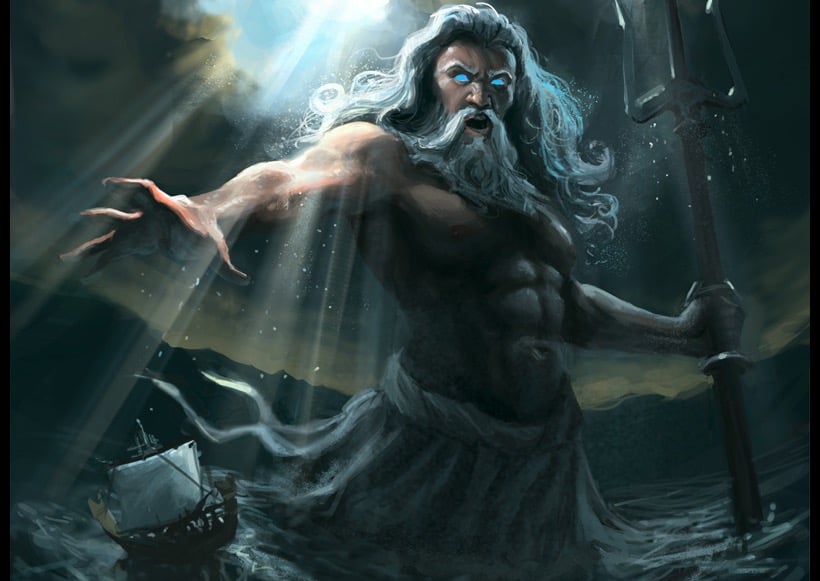
Carrying a trident with three prongs, Neptune rode a horse or a dolphin and ruled the sea. He was first to be recognized in Roman mythology as being associated with water around 399 BC.
His wife was Salacia and his brothers were Jupiter and Pluto. The Romans also worshiped him as the god of horses, under the name Neptunus Equester. His counterpart among the Greek gods was Poseidon who formed the Greek trinity of Zeus, Hades, and Poseidon.
Neptune had a reputation for being bad tempered and was known as the god of earthquakes because his anger and furious rage were related to the shaking of the earth. One famous legend about Neptune is that of Salacia and the dolphins. Amphitrite was Neptune’s wife.
Legend has it that Neptune saw Amphitrite, who was a water nymph, dancing on the island of Naxos. Captivated by her beauty, he instantly fell in love and asked her to marry him. She refused. Undeterred, Neptune dispatched one of his famuli, a dolphin, to find her again.
The witty and charming dolphin was able to convince the nymph to change her mind and agree to the marriage proposal. As a reward, he turned the dolphin into an immortal and gave it a place of honor in the heavens known as the constellation Delphinus. This is another reason why the dolphin is sometimes included in depictions of Neptune.
3. Pluto, the God of the Underworld
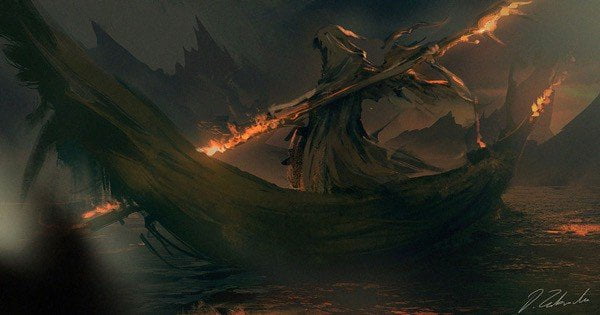
The three sons of Saturn, namely Jupiter, Neptune, and Pluto, divided the world up between them. The sky and the sea went to Jupiter and Neptune respectively; the underworld was handed to Pluto. He is monogamous and is not believed to have had a child. He represents the positive aspect of the god who presides over the afterlife and his Greek counterpart is Hades.
The name Pluto is a cognate of the Greek word Ploutos, the name for the god of wealth. The Romans considered Pluto to be the giver of gold, silver, and other subterranean substances. Because these minerals were mined, Pluto was soon recognized as the god of the physical underworld. This led to him become the god of the spiritual underworld and therefore death.
The Romans believed that if they uttered his name, they would die. Interestingly, the metal plutonium, which is connected to the planet Pluto, is radioactive and therefore potentially deadly. This substance surely deserves to belong to the god of death!
4. Apollo, the God of Sun, Music, and Prophecy
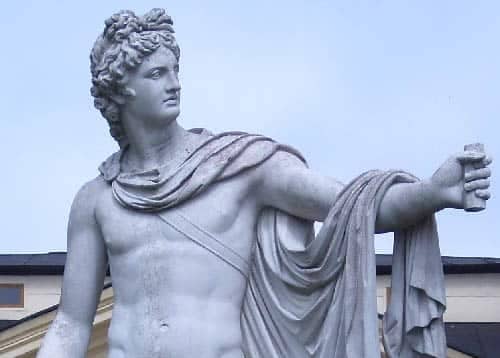
Recognized as the god of music, healing, the sun and light, truth and prophecy, plague, poetry, and more, Apollo was the son of Jupiter and brother of Diana. He is one of the most important and complex of Roman gods. Apollo is known in both the Greek and Roman pantheons of gods.
Apollo served as an intermediary between the people and the gods. Due to his integrity and truthfulness, he was given the gift of prophecy. Not only is he powerful, but he also represents youthfulness, wisdom, and beauty. He has been the subject of many different literary works and pieces of art.
Apollo was the most loved god of them all. He represented moral excellence, and his followers dedicated the Cult of Delphi to him. The cult has had a significant influence over the state’s religious and legal matters. Even today, Apollo is important on all levels of society.
5. Mars, the God of War
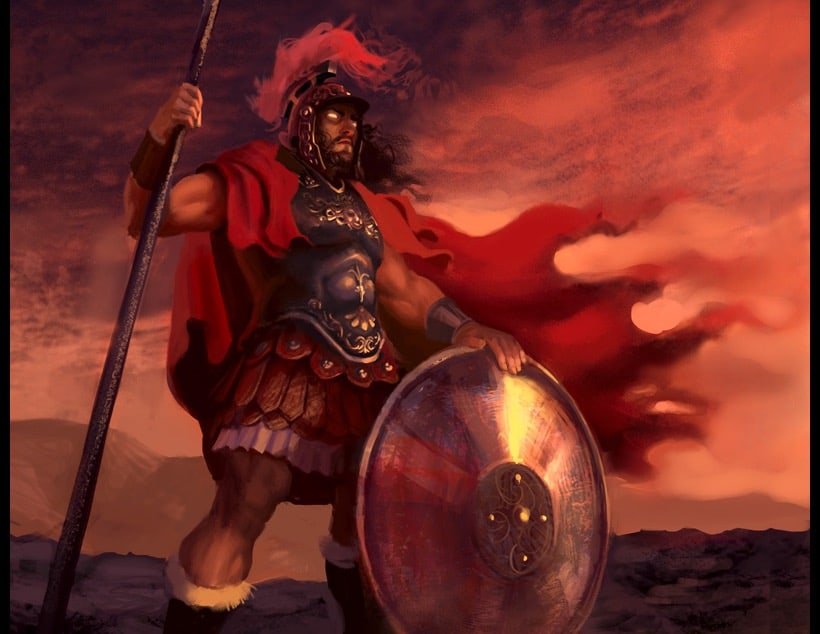
Mars is the god of war and was thought to be the protector of the Roman state. The month of March that gets its name from Mars was a month full of festivities and military celebrations.
Mars’ popularity grew during the reign of Augustus, and he was the most prominent military god in Roman history. He believed in the using military power to maintain peace. According to Roman myth, Mars fathered Romulus and Remus with Rhea Silvia and was the son of Jupiter and Juno.
His main consort was Nerio who was a vital force and power behind Mars, and she was seen as the personification of Mars’ divine powers. However, the union of Mars with Venus has been a subject for many different poets and philosophers.
His adultery has been overlooked as the beauty of the couple is cherished by artists. He is also considered to be an agricultural guardian because his energies are directed in a way that encourages the cultivation of crops. In Roman art, he is either depicted as young and clean-shaven or older with a beard. He is seen wearing a helmet and carrying a spear as his warlike emblems.
6. Cupid, the God of Love
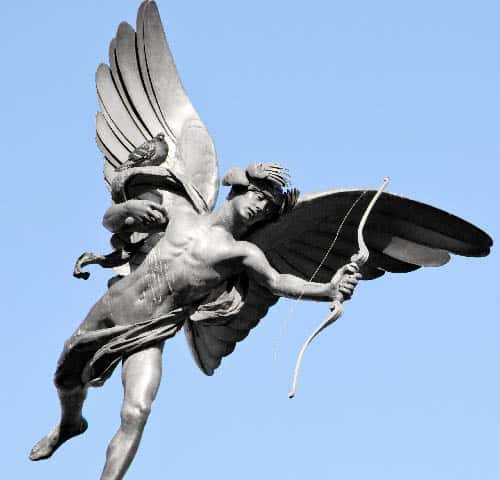
Cupid, the god of erotic desire, love, attraction, and affection, is the son of Mars and Venus. Eros is his Greek counterpart.
Cupid is often seen with a bow and arrow which is considered to be the source of power that induces affection and desire in the person the arrow strikes. The god of love has Psyche as his consort.
He is winged because those in love are thought to be able to fly. He became a familiar figure during the Middle Ages when under the Christian influence he represented the dual love of earth and heaven. A sleeping Cupid in Renaissance art signifies the absence of love and desire.
Cupid’s power to cause people to fall in love plays a major role in different mythical stories.
7. Saturn, the God of Time, Wealth, and Agriculture
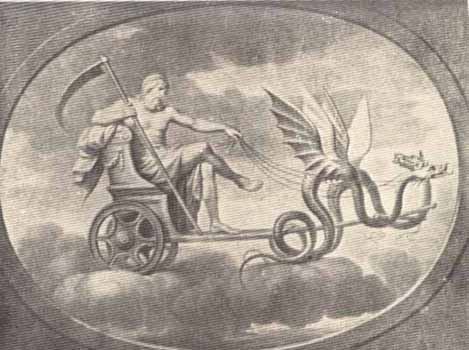
The reign of Saturn was seen as a golden age of plenty and peace. He was known as the god of dissolution, time, wealth, agriculture, renewal, and liberation. According to Varro, Saturn comes from “sowing” and the Romans identified him as an agricultural deity similar to the Greek god, Cronos.
He was the son of Uranus and Gaia and two of his consorts were Ops and Lua. Ops was associated with wealth, abundance, and resources, and Lua was the goddess to whom soldiers sacrificed captured weapons.
The position of Saturn’s festival in the Roman calendar was connected to the concept of time, especially New Year. During the Golden Age, it was celebrated on December 17 every year. This mid-winter festival was known as Saturnalia, and it lasted for about seven days.
It was a time of feasting, role reversals, gift-giving, free speech, and revelry. Moreover, Saturn the planet and Saturday both get their names from this powerful god.
8. Vulcan, the God of Fire
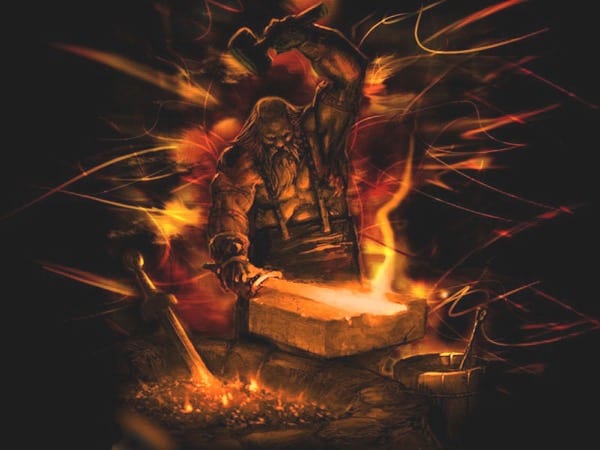
Ancient Roman myths call him the god of fire, metal working, volcanoes, and forging, and he is depicted as holding a blacksmith’s hammer.
He was the Roman equivalent of the Greek god Hephaestus. August 23 was celebrated as Vulcanalia, the annual festival which was named in his honor. The Romans believed that Vulcan represented both the destructive and fertilizing powers of fire.
Vulcan was the son of Jupiter and Juno. He was born with a red, disfigured face and was abandoned by his mother. He was thrown off a cliff and taken in by Themis as her son when he fell deep into the sea. The water then became his new home. Once, he found the remains of a fire on the beach left behind by some fishermen. The red-hot glowing coals bewitched him. He took the coals home and for hours he stared at the flames. He observed that metals like gold, silver, and iron sweated when brought near to the fire. After the metal cooled, he beat it into chains, bracelets, shields, swords, and more.
As a gesture of love, Vulcan made spoons and knives with pearl handles for Thetis, his foster mother. He also created a golden slave girl who performed various tasks for him.
9. Mercury, the God of Financial Gain, Poetry, and Eloquence
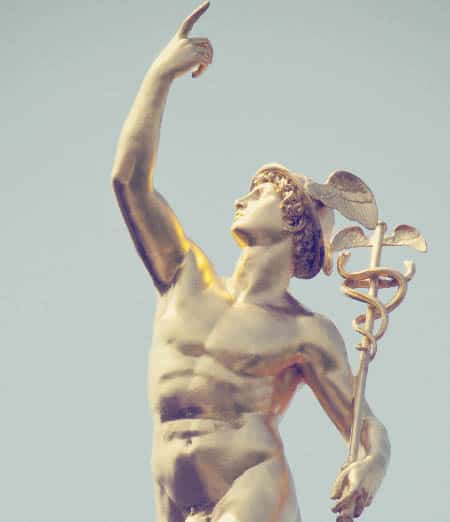
Mercury is a significant Roman god and part of the Dii Consentes in the Roman pantheon. He represents luck, commerce, travelers, eloquence, poetry, trickery, and thieves. Moreover, he is believed to guide souls to the underworld.
According to Roman mythology, he was the son of Jupiter and Maia. He is depicted in idols and paintings as holding a caduceus in his left hand just like his Greek counterpart Hermes who was given a magic wand by the sun god, Apollo, which afterwards changed into a caduceus.
As the god of commerce, Mercury was depicted on two early bronze coins of the Roman Republic, the semuncia, and the sextans. He has also featured in literary works by Ovid and Virgil. His temple in Rome was built in the Circus Maximus in 495 BC.
10. Bacchus, the God of Wine and Fertility
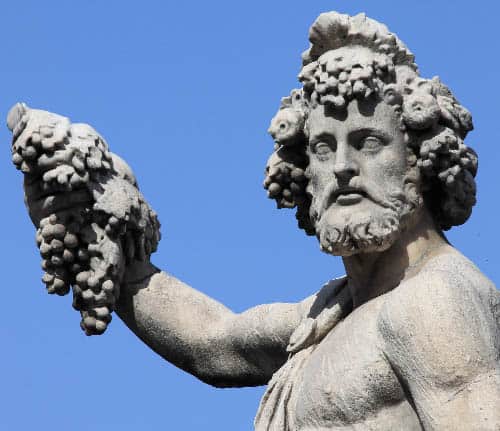
Styled after the Greek god Dionysus, Bacchus was the son of the mortal Semele and the king of gods, Jupiter. Semele was tricked by Juno into seeing him in his divine form. As a result, Semele died after seeing the real form of the god. Jupiter then sewed Bacchus, her unborn child, onto his thigh, carried him for nine months, and finally gave birth to him.
Bacchus was related to agriculture, wine, and fertility, and his plants included vines and twirling ivy. He carried a pinecone-topped staff. His followers were the goat-footed satyrs and maenads, and wild ladies who moved vivaciously during his celebrations.
In art, he is seen as a child with curly hair drinking wine, or a heavily drunk man, sometimes being put to bed by nymphs and satyrs. Sometimes he is portrayed as a young man wearing nothing but a crown of grapes and vine leaves.
Conclusion
Deities of all cultures play an important role in shaping a person’s moral life, and Roman culture revolved heavily around the worship of various deities.
These ancient Roman gods have been part of great literary works and have been greatly influenced by Etruscan and Greek cultures.
The deeper you dig the more you will know about these fascinating Roman gods!
Thank you for all this information I was in need of a website that would help me find all the main Roman gods and this had just that so I am very grateful I will look into using this for any of my future roman god needs.
You say under the Apollo section “His counterpart in Greek Mythology is Zeus who also shares the same powers as Apollo.” I don’t believe this is true, the Greek counterpart to Apollo is Apollo, Zeus and Jupiter do not share the same powers as Apollo. Apollo is the son of Zeus in Greek and the son of Jupiter in Roman.
The Roman counter part of Athena is not the goddess of war strategy but in Greek she is, so essentially, they took some of her power and importance away. Why?
The Romans took away some of Athena/Mirvanas power because they respected Ares more and they were more based on war than intelligence
They never said that Zeus shares the same powers as Jupiter. They just said that the Romans believed Zeus to be the counterpart in Greek mythology.
I think this might help you a bit, you should know that Apollo in Greek I think is pronounced: U-Pol-o, but in Greek there’s a slightly difference the SOUND NOT LETTER of U in Apollo sounds longer in Roman Mythology. And if you ever read this then you should read: Percy Jackson Series By Rick Riodoran. It is really good if you are intersted in GREEK MYTHOLOGY NOT ROMAN MYTHOLOGY it mostly about the God Poseidon or if you want to say it in Roman Mythology you can say Neptune. I hope this comment helped!
This was very good and helpful but I did want to learn about some goddesses as well. Did the Romans not think goddesses were as important than the gods?
We have a dedicated article about Roman Goddesses.
With Cupid you said he was the child of Mars and Venus. How come you did not mention Venus in your summary of Mars? I think it would of been good to include some information about goddesses just like Evelyne. But all in all it was a rather good website and I think it had lots of reliable information.